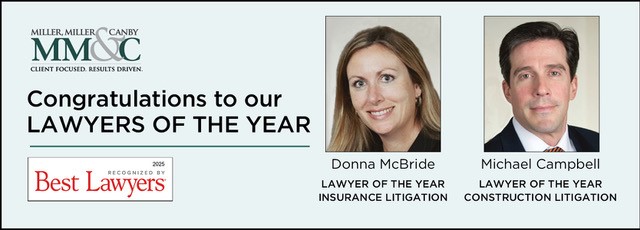Generally speaking, the owners, officers, members and managers of a limited liability company are not personally liable for the financial obligations of the company. However, there are exceptions to this general rule. One such exception was the subject of a recent unpublished opinion from the Appellate Court of Maryland.
In Comptroller of Maryland v. John J. Pedder, Sr., the court considered the exception provided in Section 10-906 of the Maryland Tax General Article. The primary purpose of Section 10-906 is to provide for the collection and payment to the Maryland Comptroller of income taxes required to be withheld under Section 10-908 of the Maryland Tax General Article. Under Section 10-906(d), an owner, officer, manager, etc. of a limited liability company is subject to personal liability for income taxes if:
- the company negligently fails to withhold or to pay the income tax, and
- the owner, officer, manager, etc. is:
- a person who exercises direct control over its fiscal management; or
- an agent of the company who is required to withhold and pay the income tax.
- a person who exercises direct control over its fiscal management; or
In the appellate case, the Maryland Comptroller had assessed John J. Pedder, Sr. for $74,966 in income taxes unpaid by Portfolio Management Consulting, LLC (PMC), a Maryland limited liability company owned 49% by Mr. Peddler and 51% by his partner, Gerard Pastore.
There was no question in this case that PMC was negligent in the withholding and payment of the income tax. Mr. Peddler’s potential liability for the tax rested solely on whether or not he exercised direct control over the fiscal management of PMC.
The Maryland Comptroller argued that Mr. Peddler exercised direct fiscal management over PMC based upon the following: 1) he owned a 49% interest in the company; 2) his name was on the business checking account; 3) he had check signing authority; 4) he possessed a business debit card; and 5) he chased business leads for PMC and negotiated contracts.
The Appellate Court disagreed and affirmed the Maryland Tax Court’s ruling in favor of Mr. Peddler. In so doing, the Court found that Mr. Peddler’s role with PMC was limited to business development and that, despite his ownership interest in PMC and the following actions, he did not exercise sufficient control over the fiscal management of PMC’s affairs. This was supported by the following finding:
- Prior to becoming aware of the tax liability, Mr. Peddler exercised his check signing authority on behalf of PMC only one time over a 14-year period, and only after receiving approval from his partner;
- Mr. Peddler became more actively involved in PMC finances once he became aware of the tax liability, however such activities were limited to reviewing checks to ensure that PMC creditors were paid;
- Mr. Peddler’s use of the PMC corporate credit card was limited to client development and the purchase of office supplies; and
- Mr. Peddler informally approved the selection of PMC’s accountant.
In contrast, the Court reviewed the actions of Homer C. House, M.D. in Comptroller of the Treasury v. Homer C. House, where personal liability for income tax liability was upheld. In that case, the evidence showed that prior to becoming aware of the income tax liability Dr. House:
- Was the majority shareholder of the taxpayer, served on the Board of Directors, and acted as Chairman of the Board;
- Was listed as the owner and responsible officer on the taxpayer’s Maryland Employer Withholding Application;
- Was authorized to draw on the tax payer’s bank account;
- Was aware that the taxpayer was in serious financial trouble;
- Made multiple loans to the taxpayer to fund payroll; and
- Actively kept himself apprised of and took steps to manage the taxpayer’s financial affairs.
What’s the Lesson?
If you are a member of multi-member Maryland limited liability company, you need to be aware of who is responsible for the fiscal management of the company’s affairs. Ultimately, this will be a fact-based determination, and it’s conceivable that more than one member could be in that position. While the Court in Pedder contrasted Mr. Peddler’s actions with the actions in the House case, it is safe to say that the demarcation line as to who does and does not exercise direct control over fiscal management lies somewhere in the middle. If you and your partners desire to delegate this authority to a single member, it should be spelled out in the company’s operating agreement and the partners should act accordingly. Regardless, if the facts show that you had a sufficient level of control over fiscal management you may be personally responsible for payment of the company’s income taxes.
How MM&C Business & Tax Attorneys Can Help
The lawyers at Miller, Miller & Canby can advise you on issues like the one addressed above, and can help you to take steps necessary to mitigate the potential for personal liability. Kevin D’Anna is a Principal at Miller, Miller & Canby and a member of the firm’s Business & Tax and Real Estate (finance) practice groups. Kevin regularly advises local and regional businesses of varying size and industry as a trusted outside counsel, providing legal advice on business formation, mergers, acquisitions or disposition, and complex business transactions. He may be reached at kkdanna@mmcanby.com.









Share this Article: